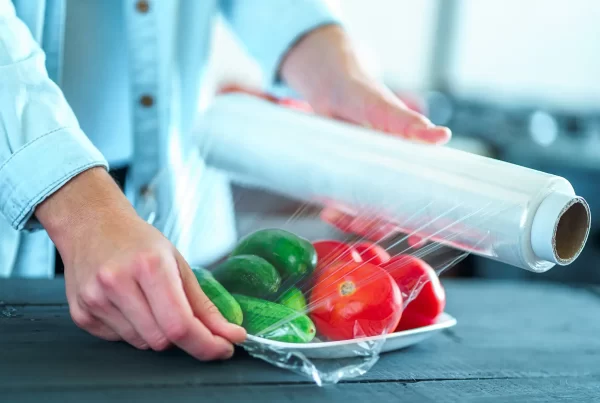The relationship between chemicals and materials in contact with food (FCM) and their influence on food safety and environmental protection is at the heart of an important debate.
In 2016, the European Parliament took a decisive position with the resolution “Implementation of the Food Contact Materials Regulation”, based on crucial assumptions for more effective and sustainable management.
This resolution emphasised the need for improved coordination to protect consumer health and reduce the environmental impact of packaging materials. In addition, it stressed the importance of supplementing REACH legislation, which aims to improve the protection of human health and the environment from the risks that can be posed by chemicals, with that of FCM, which aims to ensure the safety of food contact materials, especially for substances classified as CMR (carcinogens, mutagens or toxic to reproduction) or SVHC (substances of very high concern) by proposing the phasing out of harmful substances.
On December 7 2023, the European Commission, inspired also by Parliament’s resolution of 2016, presented the reform “One substance, one assessment” which aims to harmonise and simplify the assessments of chemicals in the EU.
The legislative package consists of 3 proposals:
- Proposal for a Regulation establishing a common data platform on chemicals;
- Proposal for a Regulation on the re-attribution of scientific and technical tasks and improving cooperation among Union agencies in the area of chemicals;
- Proposal for a Directive on the re-attribution of scientific and technical tasks to European Chemicals Agency.
 Within the “Chemicals Strategy for Sustainability (CSS)”, the 3 legislative proposals aim at a more effective management of chemical data, addressing key issues such as:
Within the “Chemicals Strategy for Sustainability (CSS)”, the 3 legislative proposals aim at a more effective management of chemical data, addressing key issues such as:
- the establishment of a common data platform,
- the redistribution of tasks among the EU agencies (ECHA, EFSA, EEA, EMA),
- the systematic collection of human biomonitoring data,
- the establishment of a monitoring and outlook framework,
- the possibility of the European Chemicals Agency (ECHA) to generate data,
- ensuring the transparency of scientific studies on chemicals, including those commissioned by companies.
Currently, there are still some critical issues. Regulation REACH (EC) 1907/2006, with its updates and amendments, still allows derogations for the use of hazardous substances, such as dibutyltin compounds, in FCM. This situation, like others, raises questions about the real effectiveness of the new legislative package in rapidly changing existing practices and about the ability to transfer chemical assessments from one legislative context to another.
Despite these misgivings, the “one substance, one assessment” package represents a significant step towards achieving the objective of more coherent and sustainable management of chemicals in the EU. This initiative lays the foundations for a future in which the information obtained from one legislative area can be applied in others, thereby promoting a more integrated and systematic approach.
Not only a paradigm shift in the management of chemicals in FCM, but also a broader vision for a future environmental and food safety policy in the EU. This vision is in line with the growing awareness of the need for more sustainable and responsible practices in the production and consumption of goods.
The next steps will include the examination of proposals by the European Parliament and the Council, following the ordinary legislative procedure. From the choices of the European institutions the EU could become a global model for the sustainable management and chemicals evaluation.




